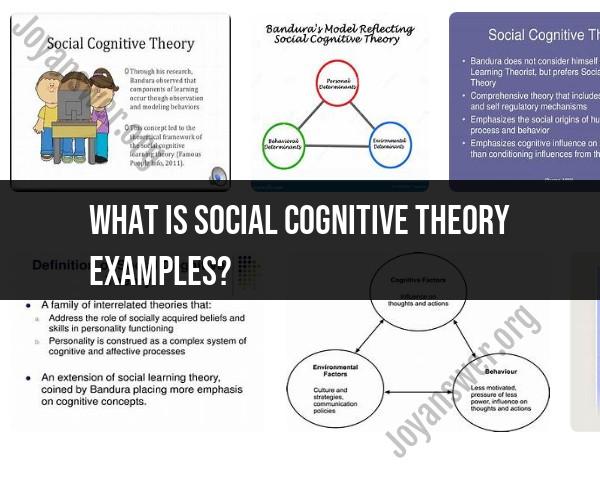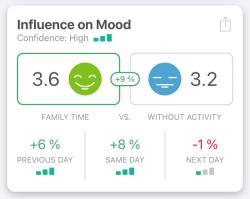What is social cognitive theory examples?
Social cognitive theory, developed by Albert Bandura, has practical applications in various fields and can be observed in numerous real-world situations. Here are some examples of social cognitive theory in practice:
Education and Learning:
- Modeling in the Classroom: Teachers can use modeling to demonstrate desired behaviors and skills to students. For instance, a teacher can model problem-solving techniques, proper pronunciation, or how to approach a complex task, influencing students to imitate these behaviors.
Health and Wellness:
- Smoking Cessation Programs: Many smoking cessation programs are built on social cognitive principles. They often feature testimonials from individuals who have successfully quit smoking (modeling) and provide participants with strategies to build self-efficacy in their ability to quit.
Marketing and Advertising:
- Celebrity Endorsements: Advertisers frequently employ celebrities to endorse products. Consumers may be more likely to purchase a product if they see a respected figure using it, reflecting the social cognitive principle of modeling.
Sports and Athletics:
- Coaching and Skill Development: Coaches often use modeling to teach athletes new skills. Demonstrating the correct technique, whether in a sport like tennis, golf, or gymnastics, helps athletes understand and imitate the proper form.
Parenting and Child Development:
- Parent-Child Interactions: Parents serve as significant role models for their children. Children often mimic their parents' behaviors, language, and values, which are central elements of the social cognitive perspective.
Professional Development:
- Mentorship Programs: Mentorship programs in various professions are designed to foster learning and skill development. Mentors provide guidance, offer real-world examples (modeling), and help mentees develop self-efficacy in their career goals.
Criminal Justice and Rehabilitation:
- Behavioral Modification Programs: In correctional facilities, rehabilitation programs often use social cognitive principles to address criminal behavior. For example, inmates may participate in programs that teach conflict resolution skills, impulse control, and alternatives to criminal activities.
Entertainment and Media:
- Television and Film Characters: The characters portrayed in TV shows and movies can serve as role models for viewers, influencing behaviors, values, and lifestyle choices. Positive and negative behaviors exhibited by characters can impact audience members.
Leadership and Management:
- Leadership Development: Leadership training programs often incorporate social cognitive principles. Aspiring leaders learn from experienced leaders (modeling) and develop self-efficacy in their leadership abilities.
Technology and Online Behavior:
- Social Media Influencers: Social media influencers can have a significant impact on their followers' behaviors and preferences. They model fashion, lifestyle choices, and product endorsements, which can influence their audience.
These examples demonstrate the wide-ranging applications of social cognitive theory. In each case, the theory's core concepts, such as modeling, self-efficacy, and reciprocal determinism, play a role in shaping behaviors and decision-making in real-world contexts. Social cognitive theory helps explain how individuals learn, adapt, and interact with their environment, making it a valuable framework in various fields.
Examples and case studies illustrating social cognitive theory
- Bobo doll experiment: Albert Bandura's Bobo doll experiment is one of the most famous examples of social cognitive theory. In this experiment, children watched a film of an adult either acting aggressively towards a Bobo doll or playing nicely with the doll. The children who watched the aggressive adult were more likely to act aggressively towards the doll themselves. This study shows how children can learn aggressive behavior through observation and imitation.
- Stanford Prison Experiment: The Stanford Prison Experiment was another famous study that illustrated social cognitive theory. In this experiment, college students were randomly assigned to be either prisoners or guards in a mock prison. The guards quickly began to abuse their power, while the prisoners became submissive and depressed. This study shows how social roles and environments can influence behavior.
Applications of social cognitive theory in psychology and education
Social cognitive theory has been applied to a wide range of areas in psychology and education, including:
- Behavior modification: Social cognitive theory is used to develop and evaluate behavior modification programs for children and adults. For example, social cognitive theory-based programs have been used to reduce aggression, improve academic achievement, and promote healthy behaviors.
- Mental health treatment: Social cognitive theory is used to develop and evaluate treatments for a variety of mental health disorders, such as anxiety, depression, and phobias. For example, social cognitive therapy (SCT) is a type of psychotherapy that is based on social cognitive theory and has been shown to be effective in treating a variety of disorders.
- Educational psychology: Social cognitive theory is used to inform educational practices and to develop effective teaching strategies. For example, teachers can use social cognitive theory to promote self-efficacy in their students and to create a positive learning environment.
The role of observational learning and self-regulation in social cognitive theory
Observational learning and self-regulation are two key concepts in social cognitive theory. Observational learning is the process of learning through observation and imitation. Self-regulation is the process of setting goals and monitoring one's own behavior in order to achieve those goals.
Observational learning is important because it allows us to learn new things without having to experience them directly. For example, we can learn how to ride a bike by watching someone else ride a bike. Self-regulation is important because it allows us to control our own behavior and to achieve our goals. For example, we can use self-regulation to stay on task and to avoid distractions when we are studying for a test.
How social cognitive theory has influenced behaviorism and cognitive psychology
Social cognitive theory has influenced both behaviorism and cognitive psychology. Behaviorism is a psychological theory that emphasizes the role of observable behavior in learning. Cognitive psychology is a psychological theory that emphasizes the role of mental processes in learning and behavior.
Social cognitive theory has influenced behaviorism by incorporating cognitive processes, such as attention, memory, and expectations, into its explanation of behavior. Social cognitive theory has also influenced cognitive psychology by emphasizing the role of social learning and observation in learning and behavior.
Contemporary developments and expansions of social cognitive theory
Social cognitive theory is a dynamic and evolving theory. In recent years, social cognitive theorists have expanded the theory to include new concepts and applications. For example, social cognitive theorists have developed new theories of moral development, self-efficacy, and aggression.
Social cognitive theory has also been applied to new areas, such as health psychology, organizational psychology, and forensic psychology. For example, social cognitive theory has been used to develop programs to promote healthy behaviors, to improve employee motivation, and to reduce recidivism in criminals.
Overall, social cognitive theory is a comprehensive and influential theory that has been applied to a wide range of areas in psychology and education. It is a valuable tool for researchers, clinicians, and educators alike.












